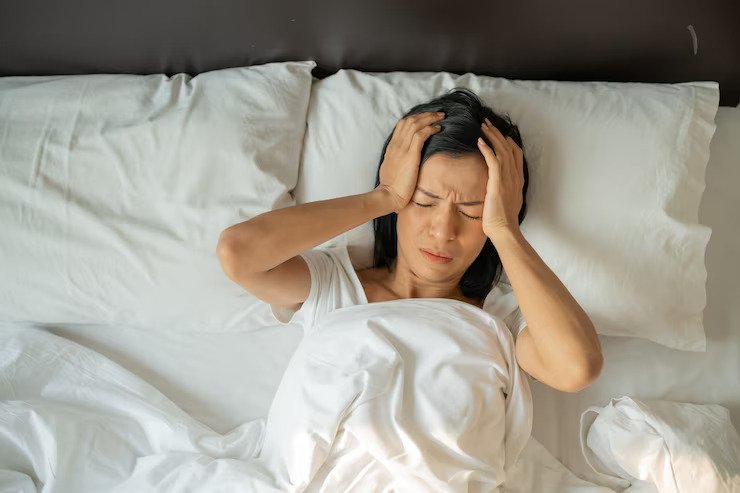The Plight of Insomnia: A Journey to Explore the Tranquil Dreamland
published on

In our lives, there is an issue that is often overlooked by people but has a profound impact on us - insomnia.
When night falls, most people are looking forward to entering a sweet dream in a comfortable bed. However, for those suffering from insomnia, this has become an unattainable luxury. For example, a lady named Ally. When she lies in bed every night, it feels like there is an endless movie playing in her mind. Various thoughts keep emerging, making it impossible for her to calm down. She tosses and turns for hours but still can't fall asleep and can only helplessly watch the time pass by minute by minute.
Insomnia is not just about being unable to fall asleep. It also brings a series of troubles to our bodies and lives. Long-term insomnia can make people extremely tired. When getting up the next day, they have no energy at all, seriously affecting the efficiency of work and study. Just like Tom who works in a certain company. Due to long-term suffering from insomnia, he makes frequent mistakes at work and has difficulty concentrating, and even gets criticized by his boss. Moreover, insomnia can also affect our immune system, making us more vulnerable to diseases.
Insomnia also has a non-negligible impact on our mental health. It can make people become anxious and irritable and may even lead to depressive emotions. For example, a man named Jack. Being plagued by insomnia for a long time, his personality gradually becomes grumpy, and his relationships with family and friends also gradually become strained.
So, how should we overcome insomnia?
First of all, adjusting living habits is extremely important. Establish regular sleep and wake-up times. Try to go to bed and get up at the same time every day to let the body's biological clock gradually adapt and stabilize. Avoid consuming beverages with high caffeine content before going to bed, such as coffee and strong tea, as they can make the brain excited. At the same time, reduce the intake of fluids in the evening to avoid frequent trips to the bathroom that affect sleep.
Secondly, creating a comfortable sleep environment is crucial. Keep the bedroom quiet, dark, and cool. You can use blackout curtains to block external light and choose appropriate sound insulation materials to reduce noise interference. Choose a comfortable mattress and pillow to ensure they can provide good support for the body and allow yourself to fully relax.
Furthermore, moderate exercise can also be helpful. Do appropriate aerobic exercise during the day, such as brisk walking, jogging, or cycling. But pay attention to the exercise time. Try not to do intense exercise within one or two hours before going to bed as it may make the body too excited to fall asleep.
In addition, relaxation techniques for the body and mind should not be ignored. Before going to bed, you can do some simple relaxation exercises, such as deep breathing, progressive muscle relaxation, or meditation. When doing deep breathing, slowly inhale and let the air fill the abdomen, and then slowly exhale. Repeat several times, which can help the body and brain relax. Progressive muscle relaxation is to tense and relax each muscle group of the body in turn, starting from the feet and gradually moving up to the head to let the body enter a relaxed state. Meditation can help us focus our attention, eliminate distractions, and calm our inner selves.
We must attach importance to the problem of insomnia and actively use these methods to try to overcome it so that we can regain a tranquil dreamland and start every day full of vitality.